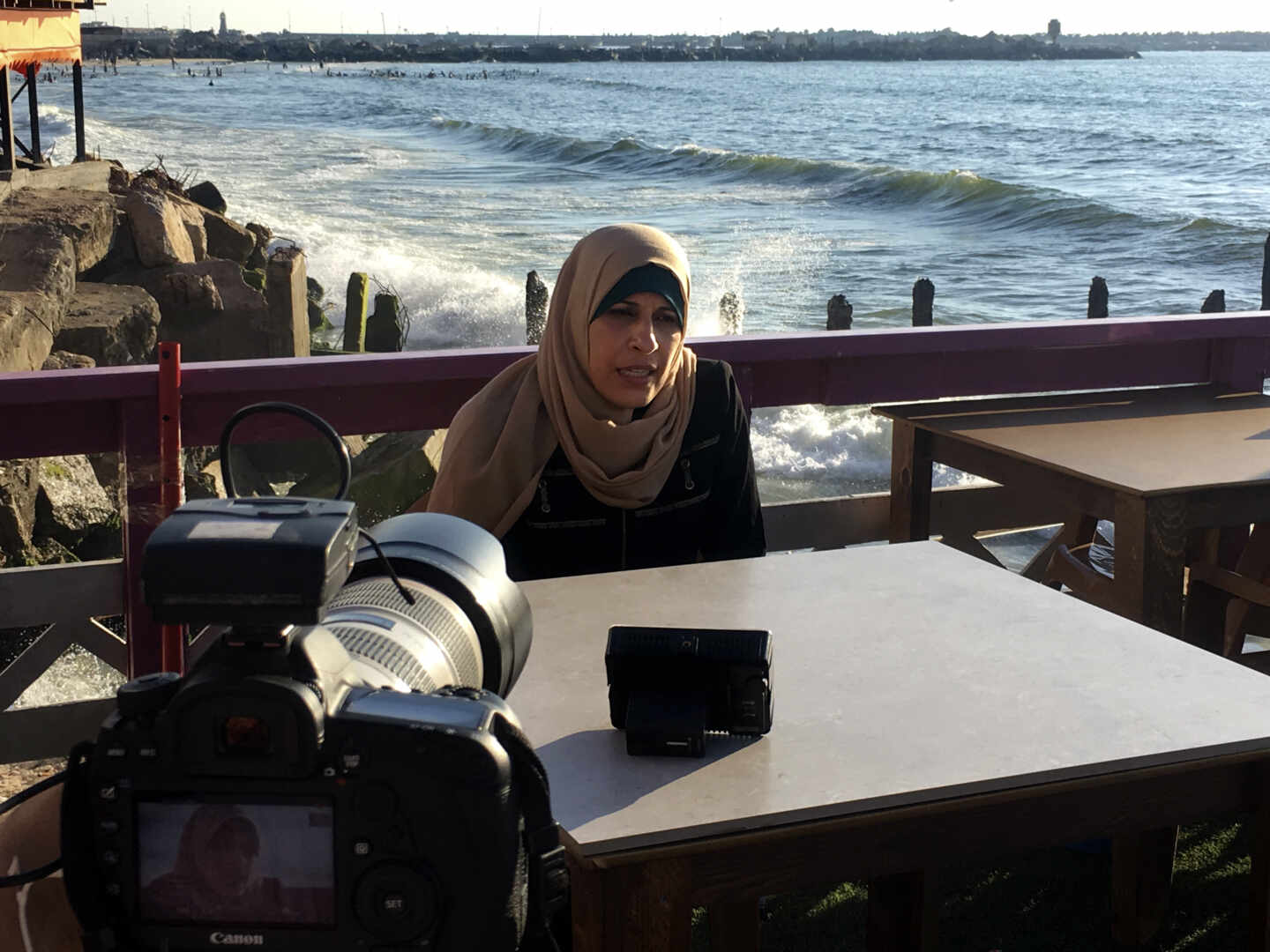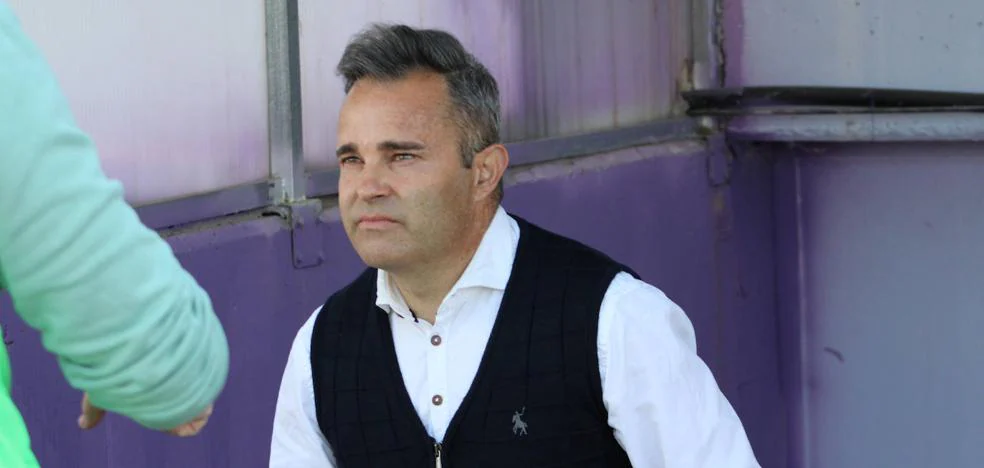“In Gaza, human rights do not exist.” Nivín Habub, 42, diagnosed with breast cancer in 2012, is the protagonist of the documentary Convicted in Gaza, by Ana Alba and Beatriz Lecumberri, which opens in Santander on June 18, after a first viewing for family and friends on Friday, May 21. The two Spanish journalists portray the drama of women with cancer in the strip: they suffer a double sentence for being women in a patriarchal society and for suffering a disease that has no treatment where they live. “I refuse to die like this,” affirms Nivín forcefully.
About two million people live in the Gaza Strip who have restricted their exits, due to the blockade imposed by Israel, and supported by Egypt, in 2007. From Gaza, under the control of the Islamic movement Hamas, considered a terrorist group by Israel, the United States and the EU, neither people nor goods can leave except with Israeli authorization. Israel argues that it is a way of protecting Israeli citizens from Hamas “terrorists.”
Cancer sufferers in Gaza who need radiotherapy or chemotherapy have to apply to Israel for permission to travel from the strip to a hospital where it is administered in Jerusalem. 40% of those who request it are negative. Many of the devices required for treatment, such as radiation therapy machines, are considered dual-use (medical and military).
The Israeli authorities allege security reasons. Nivín was denied permission on several occasions for alleged links to Hamas militants, something she denies.
Even when they get permission, the journey is an ordeal. A patient like Nivín, who after overcoming breast cancer fell victim to a recurrence in bones and brain, has to dedicate the whole day to the transfer. But Nivín needs an injection that can only be administered in Israel due to the blockade imposed on the strip since 2007 to relieve pain from bone cancer. The trip costs 500 shekels (about 123 euros) round trip.
At least Nivín has the support of her husband. It is not frequent. Many families and many couples consider a breast cancer patient to be deformed. For this reason, many women delay their visit to the doctor and that reduces their chances of survival.
In Spain, 90% of women who suffer from breast cancer survive five years after diagnosis. In Gaza they are only 65%.
Refusal on departure for treatment
Ana Alba and Beatriz Lecumberri decided to tell the story of these women when through the Israeli NGO Physicians for Human Rights they learned of the rejections of these exit permits for cancer patients. The NGO took the case to the Israeli Supreme Court and won it. From then on they did not adduce alleged links with Hamas as an argument but “security reasons”.
These women with cancer suffer the difficulties of the sick in Gaza and also the burden of the gazati, conservative and patriarchal society »
beatriz lecumberri
“That sentence concerned seven women. One of them was Nivín, who is the common thread of the documentary. Two of them died without being able to enjoy the permits. It seemed to us that it was a story that had to be told. For being women they suffered a double sentence: they suffer the difficulties of the sick in Gaza and also the burden of the gazati, conservative and patriarchal society. Health is not a priority for any authority “, says Beatriz Lecumberri in a telephone conversation from Paris, where she now works at France Presse.
When they rolled Convicted in Gaza, Beatriz Lecumberri era freelance in Jerusalem, where he met Ana Alba, who was a correspondent for The Newspaper of Catalonia. Alba won the Julio Anguita Parrado Award in its 2020 edition.
The two journalists sought out the women and then had to convince them, something that is not easy, because cancer is seen as a stigma in Gaza’s society, even more than in ours. They got it all up and running and once it was on track they raised funds through a crowdfunding. They hope to soon have a platform where they can display it.
“We explained to them that their voice was important. These women are usually not listened to by anyone. We wanted them to speak free from the gaze of fathers, husbands … They were generous because they know that doing so will not change their lives. If anything, it will be others who can benefit », says Beatriz Lecumberri.
The authorities ignore
The drama of these women starts from the situation of blockade. The journalists wanted to gather the vision of the Cog, the body in charge of civil affairs in the Palestinian territories, but got no response. Tension in the Gaza Strip is constant.
The most serious chain of attacks since 2014 just took place between Israel and Hamas in May. At least 240 people have died in Gaza, including 68 children, and another 12 in Israeli cities. Thanks to Egyptian mediation, and pressure from the US, Israel and Hamas reached a ceasefire after 11 days of bombing.
«There is a shared responsibility. If Gaza were not isolated, the circumstances would be different and Hamas would be different. Gaza is an isolated territory by land, sea and air. And then there are internal divisions between the Palestinians, Hamas that controls Gaza, and the Palestinian National Authority in the rest of the territories, which cause the people of Gaza to be even more trapped, “says Lecumberri.
All issues affecting women are not a priority for decision-makers in Palestine »
firyal zabet, women’s center in gaza
In the documentary, the director of the Women’s Center in Gaza, Firyal Zabet says: “All issues that affect women are not a priority for decision-makers in Palestine. “Everyone blames the other and no one takes charge.”
Other women who tell their story in Convicted in Gaza They are two sisters, Imam al Nayer, 36, and Nisrín Hijja, 38. Imam was never given permission to be treated in Jerusalem for breast cancer. “I am a person, I have the right to receive treatment,” says Imam. His sister, married and pregnant when diagnosed, was allowed.
The youngest of the patients portrayed in the documentary, Hayar Harb, 34, who after a campaign on social networks and a letter on Facebook to the Palestinian leader, Mahmoud Abbas, got the green light to receive treatment in Jordan, loses in the process her husband and her work as a television reporter. Her husband tells her directly that she is a “deformed” woman due to her mastectomy.
Another dramatic case is that of a five-year-old girl with a brain tumor. I cannot travel with either of her parents to undergo a risky operation, which ultimately costs her her life.
The journalist from Gaza, the youngest of all, explains how when facing a disease like cancer it hurts especially “how that society that treats you as if you were a strange and deformed being kills you.” Hayar sees the future with optimism. He hopes to rebuild his personal life and find a new job. She is a survivor.
However, Nivín passed away in October 2020, after spending months in isolation and without receiving treatment. The Covid crisis further aggravated the situation of these patients.
Five months earlier, Ana Alba had died, also a victim of cancer that she fought for three years. Until the end he kept working and one of his great motivations was that this documentary saw the light. On Friday, May 21, his colleagues, friends and family paid him a heartfelt tribute in Barcelona and had the privilege of being the first to see the work of the two journalists.
Beatriz Lecumberri has known how to bring this documentary to fruition, which is a metaphor for what Ana Alba’s life was like: passion for telling the stories of the victims, the weak, the forgotten.
–


